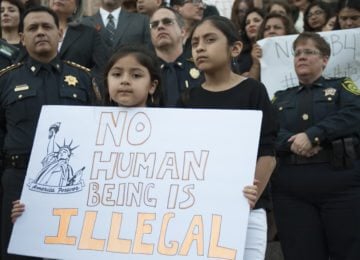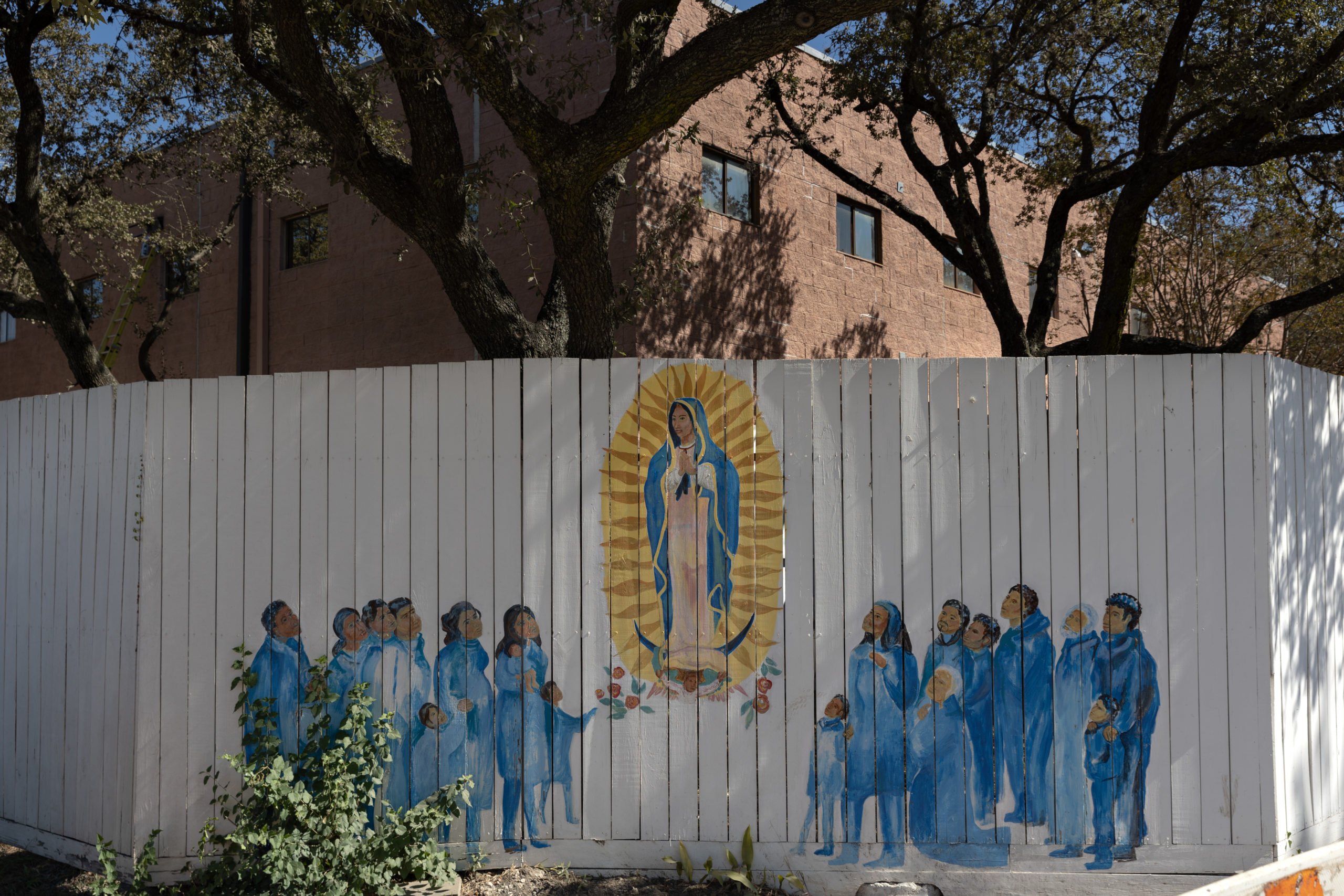
The ‘Sanctuary Cities’ Ban Has Already Reshaped Some Police Department Policies
Houston police chief: “Right in the middle of our Harvey response, we had to actually send out policy and everything to make sure we were compliant.”

On August 31, as Houstonians were being rescued from their homes amid flooding from Hurricane Harvey, Houston Police Chief Art Acevedo reluctantly issued a memo to his 5,200 officers allowing them to ask about immigration status during routine stops. The day before, a federal judge had slammed the brakes on much of Texas’ embattled “sanctuary cities” ban, a law that Acevedo has criticized as interfering with public safety. But the judge greenlighted a provision making it illegal for police chiefs to bar officers from asking about immigration status.
“Right in the middle of our Harvey response, we had to actually send out policy and everything to make sure we were compliant with the law,” Acevedo told the Observer.
Though news of the policy change was lost in the chaos of the storm, and the law’s future remains tied up in the courts, SB 4 quietly upended a progressive policing practice in Texas’ largest city. The San Antonio Police Department was also forced to weaken its pro-immigrant stance.
HPD is the fifth-largest police department in the nation, and Houston is home to an estimated 575,000 undocumented immigrants. Acevedo said the department’s old rule was to only ask about immigration status if there was a direct “nexus to a crime that’s being committed.” He gave an example: If an officer was pursuing a van and saw “30 people pile out,” she might suspect human smuggling and have cause to ask whether the individuals were undocumented. Otherwise, he said officers were forbidden from making immigration inquiries in order to prevent racial profiling and encourage witnesses of crime to come forward.
The department’s new policy broadly allows cops to ask about immigration status, with some boundaries. Officers can’t stop someone or extend detention solely to ask about a person’s immigration status. If an officer learns that someone is undocumented, the policy states, “he may only do one thing: share this information with ICE or other local entities.” The policy makes clear that no one is obligated to answer such questions, and cops cannot hold someone for refusing.
Acevedo is also requiring his officers to file an incident report every time they ask about status. But, as of last week, he said he hadn’t reviewed the data to determine whether more officers are asking. The Observer has requested the records under Texas open records law.
Acevedo thinks most of his officers will have no interest in targeting immigrants. “Will there be some outliers out there that start engaging in trying to be ICE agents? I’m not naive: Of course there’ll be somebody out there,” Acevedo said. “But if they engage in racial profiling or unconstitutional policing, they’re gonna end up being held accountable.”
The San Antonio Police Department also had to rewrite its policy in the wake of the August 30 ruling, according to the San Antonio Express-News. The department previously had a blanket prohibition on asking about immigration status, which it softened to the following: “The enforcement priorities of this department are to protect the public safety, and the priorities do not include asking any person for proof of citizenship or legal residency.”
A spokesperson for SAPD told the Observer that the department isn’t keeping statistics on immigration inquiries.

Other police departments have made only minor tweaks, if any, to their department policies because of SB 4. The Austin Police Department didn’t prohibit status inquires before SB 4, but the department did release new guidance to officers in late September. In a press conference, Chief Brian Manley announced that officers would be required to document each time they ask about immigration status. A city of Dallas spokesperson said in September the department was “preparing training materials and updating department policy to reflect the passage of SB 4,” which she said would be released to the media when finalized. (The city didn’t return multiple requests for an update.)
Officials with the cities of El Paso and El Cenizo, both plaintiffs in the lawsuit against SB 4, told the Observer they haven’t had to change their policies.
The “sanctuary cities” ban goes back to court on November 7 in New Orleans, where the Fifth Circuit Court of Appeals will hear arguments on the constitutionality of the entire law.


